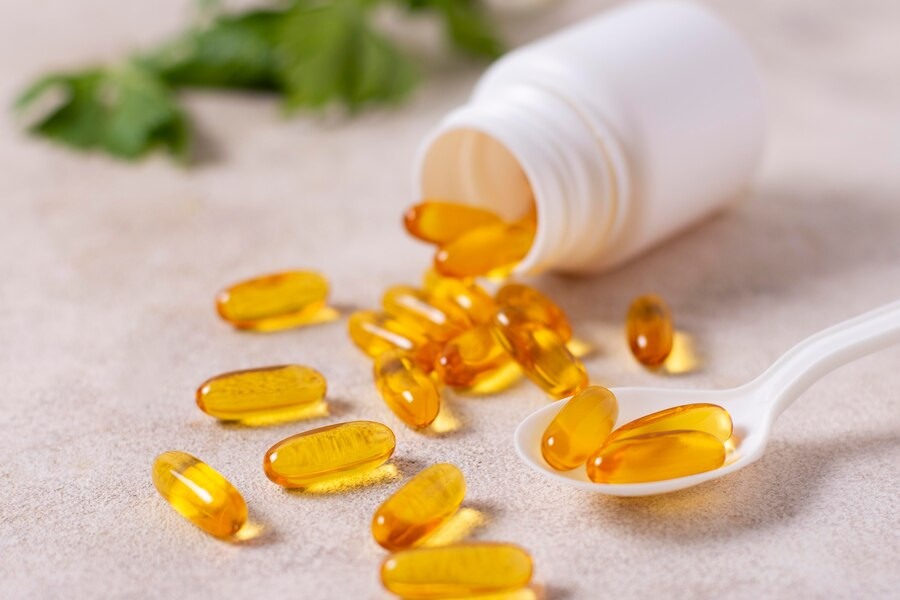Vitamin E adalah sekelompok delapan senyawa yang larut dalam lemak. Kita banyak mengenalnya sebagai vitamin yang baik untuk kesehatan kulit.
Vitamin E mudah ditemukan dalam berbagai makanan, terutama makanan yang tinggi lemak sehat dan sayur-sayuran berdaun hijau. Namun sebenarnya vitamin E tidak hanya memberikan manfaat bagi kesehatan kulit saja, ada berbagai manfaat juga bagi kesehatan tubuh.
Beragam Manfaat Vitamin E
Vitamin E memiliki beberapa manfaat penting untuk tubuh, di antaranya:
Menurunkan risiko kanker
Salah satu manfaat vitamin E adalah menurunkan risiko kanker. Sebagai antioksidan, vitamin E membantu melawan kerusakan sel yang dapat menyebabkan kanker.
Penting untuk diingat, bahwa mengonsumsi suplemen vitamin E tidak berarti mencegah kanker. Belum ada bukti ilmiah yang menunjukkan bahwa konsumsi suplemen vitamin E secara efektif mencegah kanker.
Mendukung sistem kekebalan tubuh
Vitamin E mendukung fungsi sistem kekebalan tubuh dengan meningkatkan respons imun, sehingga membantu tubuh melawan infeksi dan penyakit. Sebagai antioksidan, vitamin E mengurangi peradangan yang bisa melemahkan sistem kekebalan tubuh. Hal ini dapat membantu tubuh lebih baik dalam merespons infeksi.
Vitamin E juga meningkatkan produksi antibodi, protein yang dihasilkan oleh sistem kekebalan tubuh untuk mengenali dan membunuh patogen seperti virus dan bakteri.
Baca Juga: Mengapa Penting Melakukan Tes Kadar Vitamin D Sebelum Mengonsumsi Suplemennya?
Mencegah penyakit kronis
Penelitian menunjukkan bahwa vitamin E dapat membantu mengurangi risiko beberapa penyakit kronis, termasuk penyakit jantung dan beberapa jenis kanker, meskipun penelitian lebih lanjut masih diperlukan.
Mendukung kesehatan mata
Mata sangat rentan terhadap kerusakan oksidatif akibat paparan sinar ultraviolet (UV) dan radikal bebas. Sebagai antioksidan, vitamin E dapat membantu menetralkan radikal bebas dan melindungi sel-sel mata.
Menjaga kesehatan kulit
Vitamin E memiliki sifat antioksidan yang kuat. Antioksidan ini membantu melindungi kulit dari kerusakan yang disebabkan oleh sinar ultraviolet (UV) dari matahari dan juga paparan radikal bebas lainnya. Ini membantu mencegah penuaan dini, seperti keriput dan bintik-bintik hitam.
Baca Juga: Suplementasi Vitamin K2, Dosis dan Manfaatnya
Mengurangi risiko penggumpalan darah
Vitamin E memiliki sifat antikoagulan yang dapat menghambat agregasi platelet, artinya dapat membantu mencegah pembentukan gumpalan darah yang berlebihan. Ini membantu menjaga aliran darah yang sehat dan mengurangi risiko serangan jantung dan stroke.
Penting dicatat bahwa suplemen vitamin E tidak boleh digunakan sebagai pengganti pengencer darah atau obat lain yang diresepkan dokter. Penelitian lebih lanjut masih dibutuhkan terkait dengan manfaat dan keamanan suplemen vitamin E dalam menurunkan risiko penggumpalan darah.
Sumber vitamin E terbaik untuk dikonsumsi sehari-hari ada di dalam makanan kita, seperti kacang-kacangan, biji-bijian, minyak nabati, sayuran berdaun hijau, buah-buahan dan juga sereal. Apabila Anda merasa membutuhkan suplemen vitamin E, sebaiknya berkonsultasi terlebih dahulu dengan dokter untuk mendapatkan rekomendasi dosis yang tepat sesuai kebutuhan.
Memiliki pertanyaan seputar vitamin E? Anda bisa berkonsultasi dengan dokter kami melalui aplikasi Ai Care yang bisa diunduh di App Store atau Play Store.
Mau tahu informasi seputar nutrisi, makanan dan tips diet lainnya? Cek di sini, ya!
- dr Nadia Opmalina
Jillian Kubala, RD (2023). What to Know About Vitamin E Supplements. Available from: https://www.health.com/vitamin-e-benefits-7814358
Cleveland Clinic (2024). Top 5 Benefits of Vitamin E. Available from: https://health.clevelandclinic.org/vitamin-e
Atli Arnarson, BSc, PhD (2024). 30+ Foods That Are High in Vitamin E. Available from: https://www.healthline.com/nutrition/foods-high-in-vitamin-e
National Institute of Health (2021). Vitamin E. Available from: https://ods.od.nih.gov/factsheets/VitaminE-HealthProfessional/












